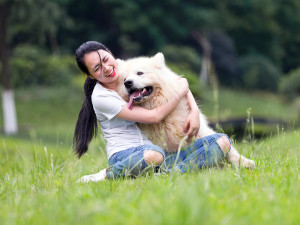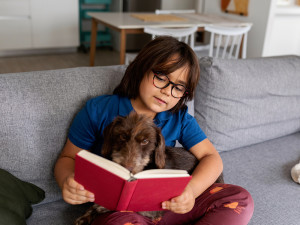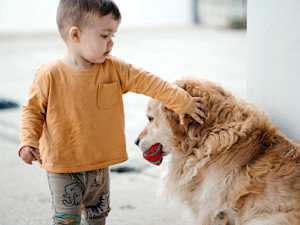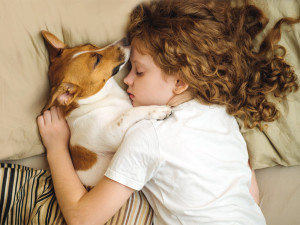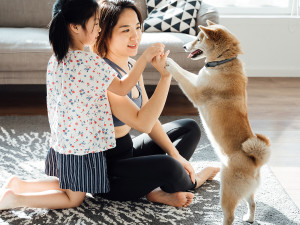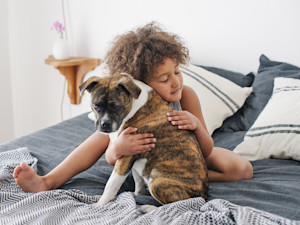Real-Life Puppy Love: How Dogs Bring Out the Best In Kids
A study shows cuddles with pups go beyond just comfort
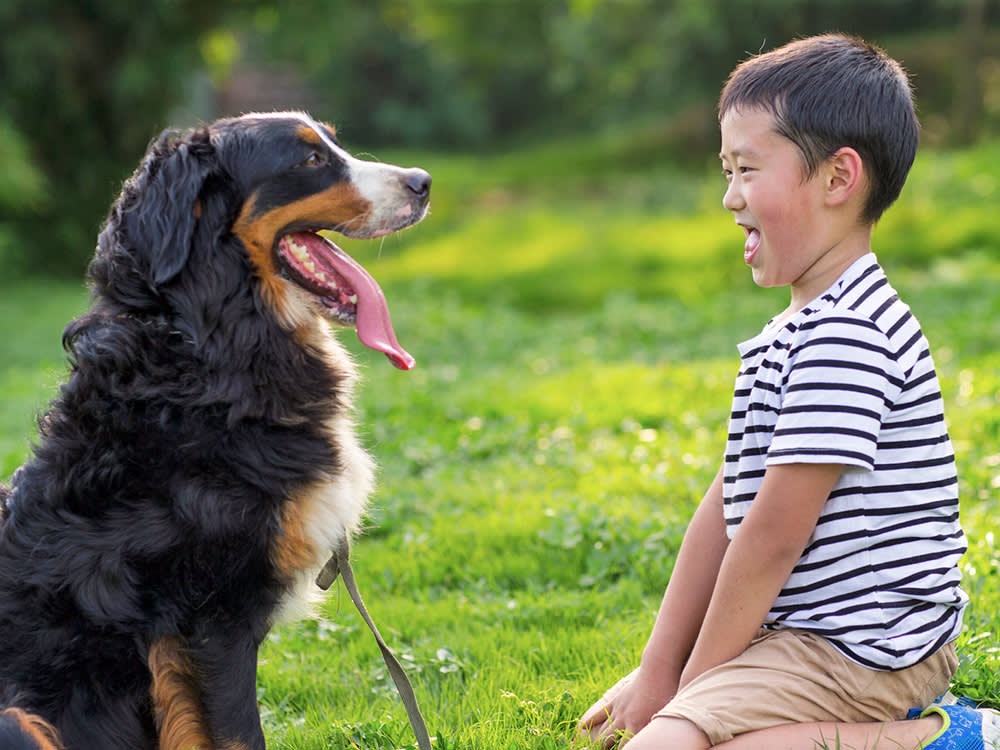
Share Article
Who hasn’t witnessed the instant connection between a child and a dog? Whether it’s a viral video of a tail-wagging puppy greeting the kids after school to a comforting cuddle on the sofa, the canine-to-kid bond feels special, and for good reason.
New research from Waltham Petcare Science Institute* has now given us scientific evidence of what most of us suspected: interactions between children and dogs significantly boost oxytocin – the famed ‘love hormone’ – which is linked to positive emotions and stress reduction. And, as if that weren’t enough, it appears the benefits flow both ways.

littleKin™ is Kinship’s home just for puppy and kitten parents. Bop over to check out expert advice, new pet tools, and special deals—all curated for your newest family member.
opens in a new tabThe studyopens in a new tab found that both children and dogs release more oxytocin when they spend quality time together, especially during play. Oxytocin, sometimes called the ‘love hormone’, is known to enhance feelings of warmth, reduce anxiety, and even improve trust and social interactions.
By measuring oxytocin levels in saliva samples taken before and after play sessions, researchers confirmed that these interactions led to a measurable spike in the hormone for both parties involved.
According to the study, “oxytocin levels were higher when children played with a dog – whether it was their own or a therapy dog”. Notably, this effect wasn’t limited to dogs belonging to the children; even therapy dogs prompted a similar hormonal boost. This reinforces the importance of human-animal bonds as a whole, rather than restricting the benefits to those with pets in their families.
While the love hormone is a star player in this story, the implications are far-reaching. Oxytocin is linked to reduced stress and anxiety levels, and these hormone-fuelled interactions with dogs could support children’s emotional resilience over time.
We already know that spending time with animals, in particular dogs, can help children with ADHDopens in a new tab (Attention Deficit Hyperactivity Disorder) with significant improvements noted in children’s social skills, pro-social behaviours and problematic behaviours.
This new research suggests that consistent, positive interactions with pets may also help children develop better social skills, empathy and even self-confidence. As Waltham highlights, the findings “show that dogs could play a crucial role in children’s social and emotional growth”.
This is the second recent study by Gnanadesikan et al.opens in a new tab that looks at the benefits of the child/dog bond, and one of very few studies in this field that examines the benefits to both children and dogs. And “it’s clear that the benefits go both ways”.
The first study, published last year, indicated that children’s cortisol levels (the hormone linked with stress) dropped when they interacted with dogs, underscoring the benefits pets can bring to children dealing with anxiety. Combined, the findings paint an optimistic picture of how pets might help tackle the rising rates of mental health issues in young people.
As mentioned, however, it's not just humans that are feeling the love. Dogs, it turns out, are equally enthusiastic about their pint-sized companions. Waltham’s research suggests that dogs also release more oxytocin when interacting with children they know well. But what does that mean?
Just as the hormone makes us feel good, it likely gives our four-legged friends a similar sense of bonding and trust, which could be why dogs display such eagerness to play and connect with familiar children, bringing true meaning to the phrase “human’s (or child’s) best friend”.
Given all these heart-warming findings, it’s hardly surprising that dog ownership in the UK has surgedopens in a new tab over recent years, especially among families with young children. There’s something uniquely comforting about a family dog, often becoming a soothing presence amid the hustle and bustle of daily life. As this research underlines, that emotional anchor comes with genuine mental health perks for both kids and dogs.
But even if adding a pet to the family isn’t possible, Waltham’s findings imply that regular interactions with animals, such as visits with therapy dogs or the dogs of friends’ and family, could provide similar benefits. Schools, hospitals, and community groups are increasingly aware of these benefits, incorporating therapy dogs into their programs to help alleviate stress and anxiety among children.
For parents weighing up the responsibility of a pet, Waltham’s research is a refreshing reminder of how deeply animals can enrich children’s lives, both in the here and now and as they grow into well-rounded adults. Not to mention, for any parent with a young child begging for a puppy, this study might just be the ‘scientific proof’ they need to consider saying yes. And, let’s face it, the prospect of an enthusiastic support pup on standby for every scraped knee is pretty compelling.
*Waltham is a Mars brand. We think they’re pretty cool, but we don’t play favourites. So, when we have family ties, we’ll be real with you.

Orla Pentelow
Orla Pentelow is Kinship UK’s Senior Editor. She has previously written for British Vogue, Bustle, Yahoo and The Telegraph. When not at her desk liking dog videos she’s out and about with her rescue pup, Luna, who works primarily as chief distractor.
Related articles
![a man and a woman with tattoos huge a red and white dog]() opens in a new tab
opens in a new tabThese People Completed Their Families With Pets Instead of Babies (and Don’t Regret a Thing)
“You realise that they can’t do anything without you. They need you. But then you realise you need them just as much”
![Sweet curly girl and jack russell dog is sleeping in night.]() opens in a new tab
opens in a new tabDogs Improve the Sleep Habits of Children With Autism, New Study Finds
New research shows that service dogs help autistic kids sleep better and longer
![mom and daughter playing with puppy]() opens in a new tab
opens in a new tabHow to Introduce Your New Dog to Your Kids
They’ll always remember their first childhood pet – this intro is just the beginning
![a small child with curly hair hugs a dog on a bed]() opens in a new tab
opens in a new tabHelping Your Child Deal With The Grief of Losing a Pet
When it’s time to say goodbye…
